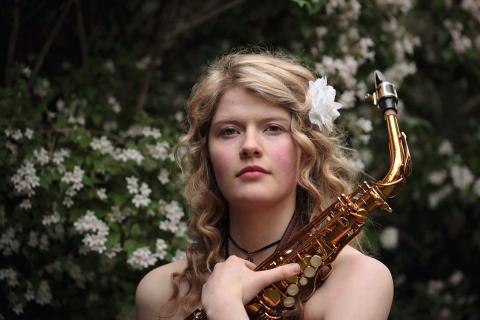The folk tale of Widdershins fascinated me as a child. Perhaps we are all searching, half-believing in an ‘Elfland’ at that age, hoping it's just somewhere hidden between the trees. The traditional plot has a boy and his sister transported to an Elf Kingdom after the girl has run ‘widdershins’ (anti-clockwise) around a church. I grew up feeling both awe and fear with respect to the Church. Often the story of the children who went ‘widdershins’ popped into my mind as I struggled to come to terms with my sexuality. Growing up can make you feel lost and confused, but within the mist there's always plenty of scope for fantasy, like an Elf-land. 'Explore' is the first of three movements for string quartet (the other two are 'Capture' then 'Lost'). It evolves around a syncopated motif introduced by the first violin at the very start. This motif is the clock ticking; the first part is clockwise and the second part is anti-clockwise or 'widdershins'. As this energetic movement develops, the positive, youthful mood veers into a uncontrollable frenzy. I imagine the little girl in the tale being captured, just as she's getting too excited running anti-clockwise round the church. The feeling of exploration and subsequent 'capture' is one shared by many LGBT youth as they struggle to reconcile sexuality with societal influences.
Composer: Asha Parkinson

Asha Parkinson is a London-based saxophonist and composer whose work regularly crosses the boundaries between traditions. She was three times semi-finalist in the BBC Young Jazz Musician competition and was shortlisted in 2016 BBC Inspire Composers Competition. She recently graduated from the Guildhall School of Music and Drama with first class honors. Additionally, she was one of 20 young people internationally to win Diana Legacy Award for her humanitarian initiative Voices Beyond Divisions. Asha’s compositional style brings together a wide range of influences, ranging from Arabic maqam, flamenco compas, Indian tala to the modal polyphony of the Notre Dame School and Olivier Messaien.